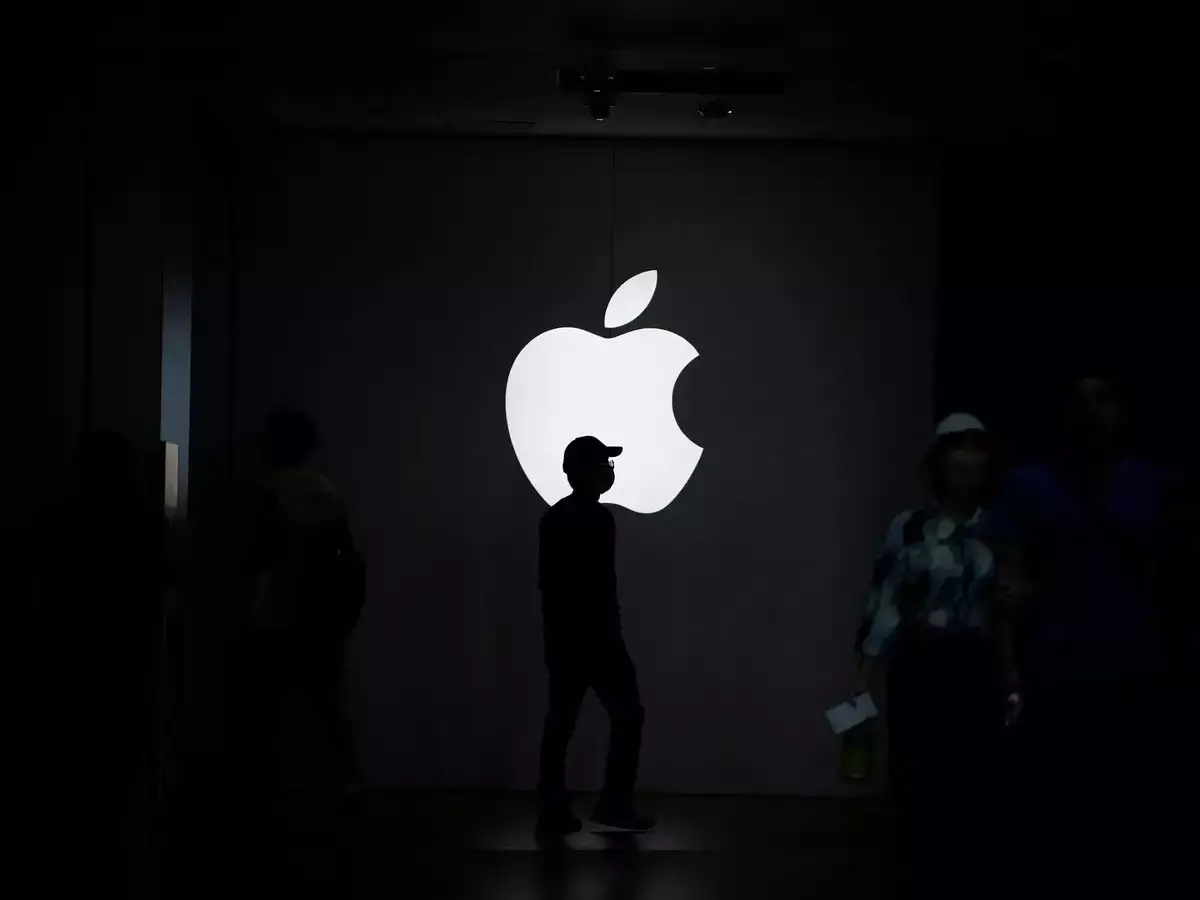On September 8, developments in China sent shockwaves through the global tech industry. The widening restrictions on iPhone use by Chinese government personnel sparked concerns about potential repercussions for Apple and its supply chain, all while escalating tensions between the United States and China and increasing competition from Huawei further compounded the unease.
Apple, a global tech giant, saw its shares plunge by 6.4% in just two days, causing a staggering $190 billion erosion in its market capitalization. This downturn followed reports that the Beijing government had instructed central government employees to cease using iPhones for work-related activities. While some on Wall Street believed the sell-off was an overreaction, suggesting that the impact on Apple’s revenue would likely be minimal due to the iPhone’s popularity in China, the initial market response was a sharp decline. However, Apple shares showed signs of recovery, gaining 1.3% in Friday trading after the initial slump.
What compounds this challenge for Apple is the stepped-up competition from Huawei, a prominent Chinese tech company. Huawei recently introduced two new smartphones, the foldable Mate X5 and the Mate 60 Pro+, which garnered global attention for their resilience to U.S. sanctions. Analysts speculated that these moves by Huawei could be the initial steps in its comeback bid to challenge Apple, following its loss of market share due to U.S. sanctions four years earlier. Adding to the pressure, Apple was preparing to launch a new iPhone, hoping to boost sales after a relatively weak quarter.
“We believe Huawei’s activity this time was well prepared and not sudden,” said Ivan Lam, an analyst at Counterpoint, expressing optimism about Huawei’s new products exceeding previous expectations. “It can manage the psychological expectations of the target consumer group before Apple’s press conference.”
China has been a lucrative market for Apple, ranking as its third-largest market after the Americas and Europe. This has been particularly significant given the challenges faced by Apple’s iPhone sales in recent times. Huawei, too, had struggled with its smartphone business after the United States imposed restrictions on tech exports in 2019.
Apple’s resilience in the Chinese market this year was partially due to discounts offered by third-party retailers in February, with discounts on its iPhone 14 Pro reaching as high as 10%. However, experts caution that these discounts might impact sales of Apple’s new products set to launch soon.
In Taiwan, a hub for Apple’s suppliers, companies like Largan Precision and TSMC experienced drops in their stock prices. Largan Precision, which manufactures camera lenses for Apple, saw its stock drop by over 4%, while TSMC, a contract chipmaker for Apple, experienced a 0.6% decline. Luxshare Precision Industry, which owns factories capable of producing iPhones, also faced a 2% decrease in its stock price.
Meanwhile, U.S.-based Apple suppliers like Qualcomm and Broadcom remained relatively stable, with Qualcomm’s stock edging up 0.1% and Broadcom’s declining by 0.4%.
On the flip side, suppliers to Huawei experienced gains in their stock prices. Semiconductor Manufacturing International Corp (SMIC), believed to be the manufacturer of the advanced chip in Huawei’s new smartphone, saw its stock rise by 0.7%.
The extent of China’s iPhone restrictions remains unclear, but reports suggest that they may affect visitors as well. An employee at a state-owned enterprise (SOE) in Beijing confirmed that the ban extended to visitors and employees alike. Incentives, in the form of subsidies ranging from 100 to 200 yuan ($13-$26), were reportedly being provided to employees to switch to local smartphone brands. However, some employees at other SOEs claimed they had not been subjected to such bans.
While the number of central government employees impacted by these restrictions remains undisclosed, Bank of America estimated that a ban of this nature could potentially reduce iPhone sales by 5 million to 10 million units annually, considering China’s total annual iPhone sales of up to 50 million units.
In the case of Huawei, the new Mate 60 Pro is expected to drive a 65% increase in smartphone sales this year, reaching 38 million units, barring any “non-commercial risks.” This forecast, by Ming-Chi Kuo, an analyst at TF International Securities, suggests that Huawei could be on its way to presenting a more significant threat to domestic competitors.
Nevertheless, some Wall Street analysts opined that Apple’s ecosystem in China remained robust, with the average iPhone owner in the country owning 2.5 Apple devices.
The broader takeaway from these developments is that even a company with a substantial presence in China and strong ties to the government is not immune to the escalating tensions between the U.S. and China. Apple had already begun diversifying its production away from China following the stringent COVID-19 restrictions in the country, and this move seemed to have caught the attention of Beijing.
“The only way Apple could draw the ire of Beijing is moving supply chains out of China at a pace or to a degree Beijing feels uncomfortable with,” noted Evercore ISI strategist Neo Wang. This strategic shift could explain the heightened response from Beijing, using security concerns as a pretext. It remains unclear whether this is part of a broader pattern in Beijing’s approach.
As geopolitical tensions continue to affect the tech industry, the U.S. is working to limit China’s access to key technological advancements, particularly advanced chip technology. In parallel, Beijing is actively seeking to reduce reliance on American technology. A teardown analysis by research firm TechInsights revealed more China-made chip components in the Mate 60 Pro compared to previous models, underscoring China’s progress in this domain.
The U.S. Commerce Department has expressed interest in investigating the “character and composition” of Huawei’s new chip to determine if it violates trade restrictions. These developments highlight the growing complexity and interplay of economic, technological, and geopolitical factors in the global tech landscape.
the recent events surrounding Apple, Huawei, and China’s tech industry underscore the delicate balance of power and influence in the global tech ecosystem, with political and economic considerations closely intertwined with technological advancements and market dynamics.





